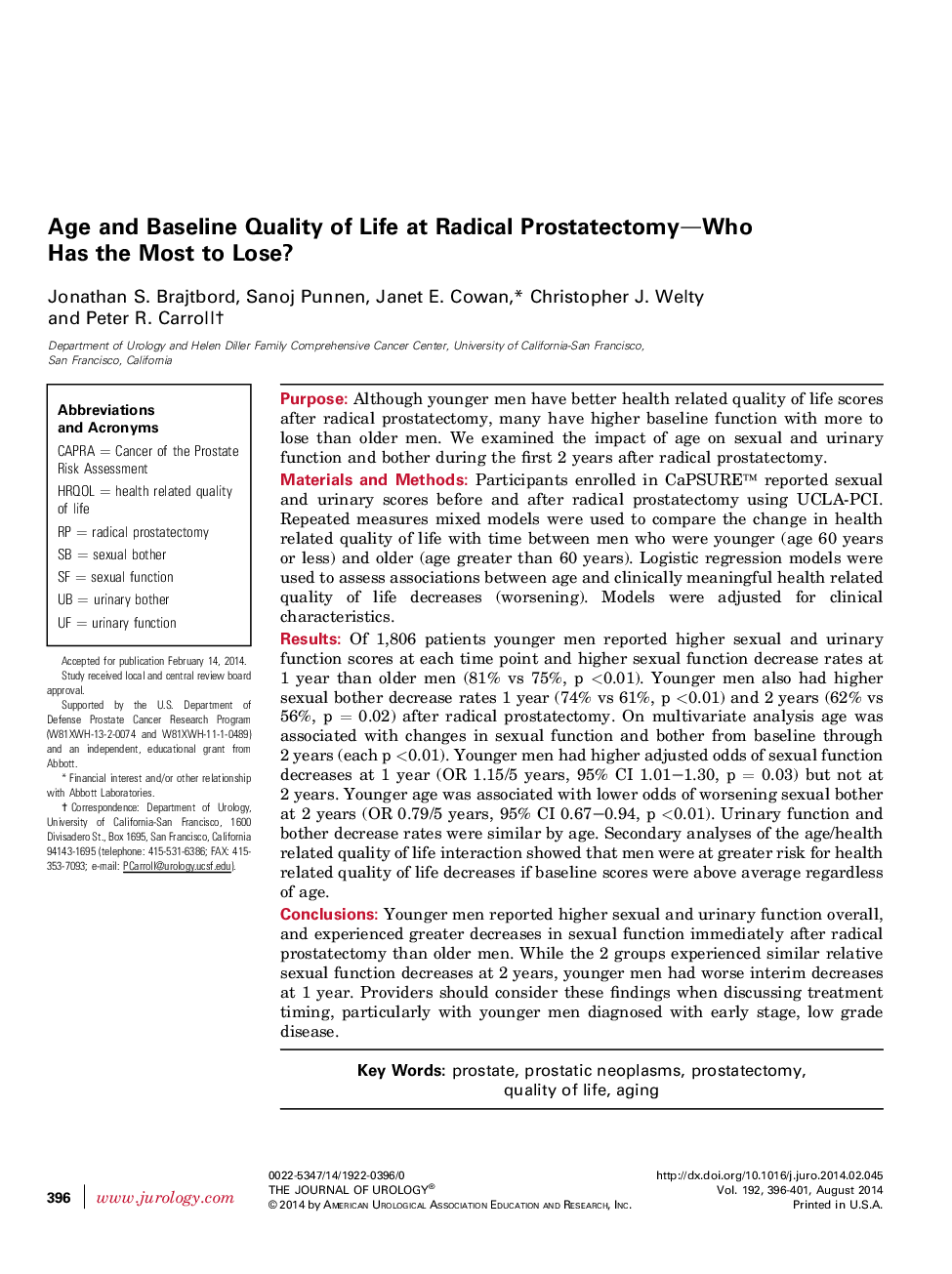| کد مقاله | کد نشریه | سال انتشار | مقاله انگلیسی | نسخه تمام متن |
|---|---|---|---|---|
| 3861066 | 1598901 | 2014 | 6 صفحه PDF | دانلود رایگان |
PurposeAlthough younger men have better health related quality of life scores after radical prostatectomy, many have higher baseline function with more to lose than older men. We examined the impact of age on sexual and urinary function and bother during the first 2 years after radical prostatectomy.Materials and MethodsParticipants enrolled in CaPSURE™ reported sexual and urinary scores before and after radical prostatectomy using UCLA-PCI. Repeated measures mixed models were used to compare the change in health related quality of life with time between men who were younger (age 60 years or less) and older (age greater than 60 years). Logistic regression models were used to assess associations between age and clinically meaningful health related quality of life decreases (worsening). Models were adjusted for clinical characteristics.ResultsOf 1,806 patients younger men reported higher sexual and urinary function scores at each time point and higher sexual function decrease rates at 1 year than older men (81% vs 75%, p <0.01). Younger men also had higher sexual bother decrease rates 1 year (74% vs 61%, p <0.01) and 2 years (62% vs 56%, p = 0.02) after radical prostatectomy. On multivariate analysis age was associated with changes in sexual function and bother from baseline through 2 years (each p <0.01). Younger men had higher adjusted odds of sexual function decreases at 1 year (OR 1.15/5 years, 95% CI 1.01–1.30, p = 0.03) but not at 2 years. Younger age was associated with lower odds of worsening sexual bother at 2 years (OR 0.79/5 years, 95% CI 0.67–0.94, p <0.01). Urinary function and bother decrease rates were similar by age. Secondary analyses of the age/health related quality of life interaction showed that men were at greater risk for health related quality of life decreases if baseline scores were above average regardless of age.ConclusionsYounger men reported higher sexual and urinary function overall, and experienced greater decreases in sexual function immediately after radical prostatectomy than older men. While the 2 groups experienced similar relative sexual function decreases at 2 years, younger men had worse interim decreases at 1 year. Providers should consider these findings when discussing treatment timing, particularly with younger men diagnosed with early stage, low grade disease.
Journal: The Journal of Urology - Volume 192, Issue 2, August 2014, Pages 396–401
